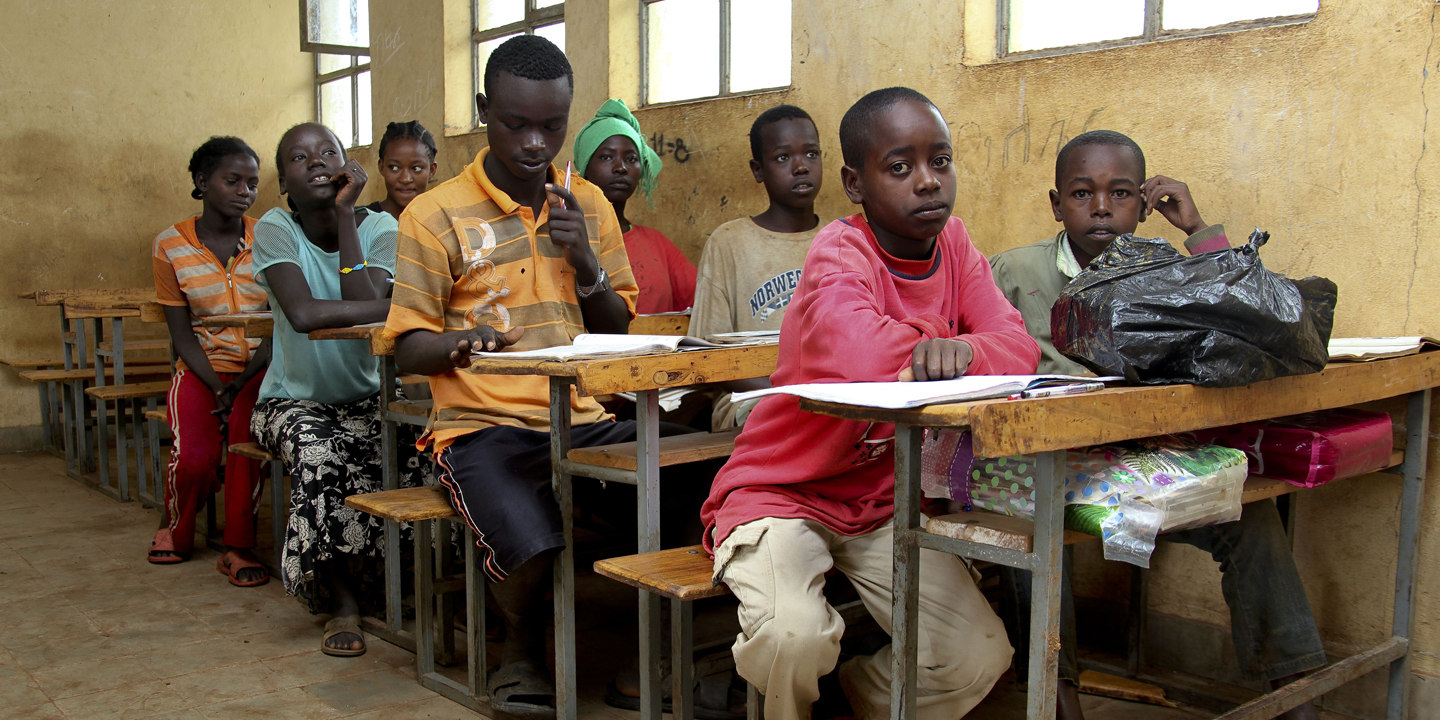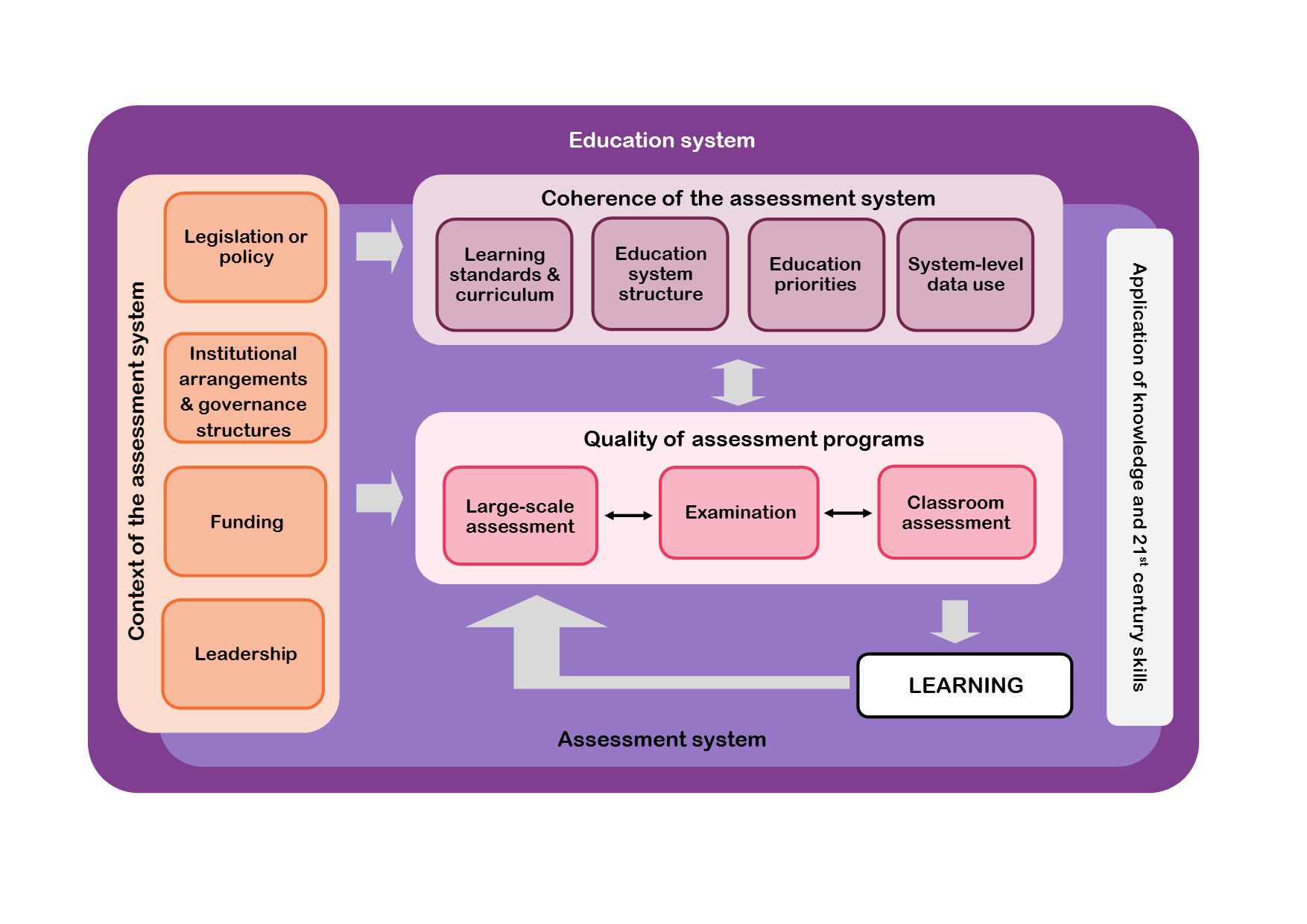
A new toolkit to analyse national learning assessment systems
Research 31 Jan 2020 7 minute readHigh-quality learning assessment systems are key elements of robust education systems. They generate data on learning and achievement that are required to monitor equitable educational outcomes, inform evidence-based policymaking, and improve teaching and learning practices.
In late 2019, the Global Partnership for Education (GPE) launched the Analysis of National Learning Assessment Systems (ANLAS), a resource for GPE partner countries to build effective and sustainable learning assessment systems. ANLAS is a toolkit for countries to systematically gather and analyze information about their learning assessment systems, with the aim to inform improvement strategies as part of the wider education sector planning process. As such, ANLAS is a core component of GPE’s Assessment for Learning (A4L) initiative.
ANLAS was developed on behalf of GPE by the Australian Council for Educational Research (ACER) with substantive support from the ACER Centre for Global Education Monitoring (ACER-GEM).
The ANLAS model developed by ACER integrates the three dimensions of the assessment system – context, quality of assessment programs, and coherence – and the cross-dimensional element of application of knowledge and 21st century skills to promote the use of assessment data in education policy and practice, with the ultimate aim to improve learning.
The ANLAS model. Source: Australian Council for Educational Research, “ANLAS. Manual,” 2019, 4.
Each dimension in the model has several key areas, with defined quality objectives against which the key areas are evaluated. Based on this information, aspects that require improvement are identified, and recommendations are made about how the key areas can be improved.
The ANLAS processes and tools were piloted in three GPE partner countries: Ethiopia, Mauritania and Vietnam. To facilitate the piloting support in Mauritania in French language, ACER collaborated with CONFEMEN/PASEC. The piloting was an important part of the ANLAS development.
Major findings from the analysis in the three piloting countries
For the three piloting countries Ethiopia, Mauritania and Vietnam, a major motivation to implement ANLAS was the opportunity to gain systematic information about the national learning assessment system and to identify areas of improvement that can be further translated into improvement strategies to be realised through education sector planning processes. While the analysis provides detailed findings and recommendations for each key area and dimension of the ANLAS model, a few major findings from the piloting countries are highlighted below.
In Ethiopia, the findings of ANLAS showed that the current assessment system provides relevant data for the key stages of primary and secondary school education. Aspects that require improvement were identified in relation to education policy priorities and learning standards and curriculum. They included a stronger focus on teaching, learning and assessing 21st century skills and assessing language skills including listening, writing and speaking. The integration of data from the national learning assessment and classroom assessments into the national education management information system (EMIS) and resulting reports was also an important recommendation from the analysis.
In Mauritania, ANLAS resulted in several recommendations, including the creation of a comprehensive learning assessment framework for all levels of education, the development of modules in learning assessment for initial teacher education programs and undertaking the necessary steps to participate in regional and international assessments. The results of ANLAS are seen as an important element for the formulation of the sector's policy orientations, specifically in the 2021-2030 Education sector Plan and the 2019-2021 three-year action plan for improving education in Mauritania.
In Vietnam, the analysis revealed that assessment frameworks and instruments, sampling, field operations and data management are well established. However, improvements are needed in organization and resources, data analysis and reporting and dissemination. A number of concrete recommendations were formulated, many of them focused on training and capacity building (e.g. specialised courses and post-graduate programs in educational assessment and evaluation, technical training on sampling and data analysis for new staff).
How is ANLAS implemented?
ANLAS is conceptualized as a country-led, participative process that is implemented by a national team. The ANLAS toolkit consists of the ANLAS Manual and a set of tools to support the implementation process and to guide the analysis. Countries can adapt the tools to best fit the national context.
ANLAS can be initiated by a unit or agency of the government, typically involved in education sector planning, or assessment, monitoring and evaluation. It can also be proposed by a development partner and subsequently initiated by the government.
GPE encourages countries to implement ANLAS as part of the broader education sector analysis and planning process to ensure that the findings feed into the development and implementation of strategies included in the education sector plan (ESP). For example, ANLAS can be undertaken as a precursor to or as part of an education sector analysis process such that the key findings and recommendations can be subsequently reflected in an ESP. However, ANLAS can also be conducted during other phases of the policy cycle.
The two main methods for completing the qualitative analysis in ANLAS are document review and consultations with key stakeholders in the education system and in the assessment system. The time required to undertake the analysis varies, depending on the resources and needs of each country. However, a period of six months is an indicative timeframe, with a national team of eight to 12 members working on ANLAS part-time.
To support broad adoption, debate and use of findings, reporting and dissemination are an essential part of ANLAS. Each country which conducts ANLAS develops dissemination products and a strategy to support the use of the findings and recommendations to develop detailed strategies that can be implemented through the country’s education sector planning process, or other policy processes.
Embedded in the broader Education 2030 agenda to monitor progress towards achieving SDG 4, the ANLAS toolkit is provided by GPE as a global good for countries around the world that wish to undertake a comprehensive analysis of their national learning assessment system. Interested stakeholders in GPE partner countries that wish to undertake the analysis should contact the GPE Focal Point within the national Ministry of Education and/or Coordinating Agency in the country for further information.
Find out more:
This is an edited version of an article by Ramya Vivekanandan, Senior Education Specialist, Learning Assessment Systems, GPE Secretariat, and Ursula Schwantner, Senior Research Fellow, Australian Council for Educational Research, that originally appeared on the Global Partnership for Education blog: https://www.globalpartnership.org/blog/announcing-new-gpe-initiative-strengthen-national-learning-assessment-systems
Watch the webinar ‘Introducing ANLAS: A GPE initiative to strengthen learning assessment systems’
